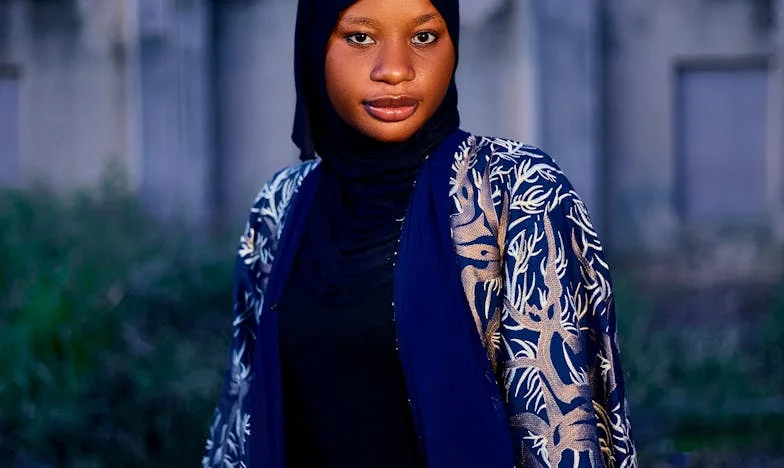Behind Closed Doors: My Solitude, My Sanctuary
“Martha, you can’t just keep shutting the world out!” my daughter, Emily, shouted from my living room, her voice sharp with frustration. The sun had barely lifted above the maple trees outside, but already tension hung thick in the air, as if it had seeped into the walls overnight. I stood clutching my coffee mug so tightly my knuckles ached, refusing to meet her eyes. I watched the steam spiral, focusing on the way it curled and vanished.
How do I explain that my home is my fortress, my final safe place? That every unexpected knock, every forced smile at the door, feels like an invasion? I’m not antisocial. I love my children, my grandchildren, my friends. But after sixty-five years of giving, hosting, and pretending, I just want my space to be mine. Is that so hard to understand?
Emily was pacing now, her sneakers squeaking on the hardwood floor. “Mom, it’s just a visit. You haven’t seen the kids in weeks. They’re growing up so fast—don’t you want to be part of their lives?”
I bristled. Guilt, my old companion, nudged at me, whispering that I was selfish. I wanted to snap back, tell Emily that I did see them—at the park, at coffee shops, at their soccer games. Anywhere but here, under my roof. But I held my tongue, afraid of the hurt in her eyes.
“We can meet anywhere, Em. You know that,” I said quietly. “The kids love the playground.”
She sighed, exasperated. “But it’s not the same! Grandma’s house is supposed to be special. You used to make it special for us.”
I glanced around at the tidy living room. The crocheted blanket on the couch, the photos of Emily and her brother Jason as toddlers, the old piano in the corner gathering dust. Once, this house had been a haven for laughter and chaos. Now, it was my sanctuary, silent and orderly, just the way I liked it.
“Things change, honey. People change,” I whispered, so softly I wasn’t sure she heard.
Emily’s shoulders slumped. She picked up her purse, her disappointment a living thing in the space between us. “I just wish you’d let us in, Mom. That’s all.”
I watched her leave, the door clicking shut behind her, and let out a breath I didn’t know I was holding. My heart thudded in the quiet. I’d hurt her, again. But the thought of visitors—their footsteps echoing, their voices bouncing off my walls—made my skin crawl. Was I broken?
The neighbors talk, I know they do. “There goes Martha, the recluse,” they probably say as they water their lawns. I see the pity in their eyes at the grocery store, masked by tight smiles. “You should get out more,” they chirp, but it’s not the outside world that frightens me. It’s the invasion of my peace, the feeling of being out of control in my own space.
When my husband, Frank, died five years ago, the silence was unbearable at first. Friends flocked to my door with casseroles and sympathy, filling the house with noise and forced laughter. I smiled and nodded, but inside I was screaming for them to leave. When the last visitor finally left, I locked the door, sat on the couch, and cried—not for Frank, but for the relief. I was alone, and I was free.
Jason, my son, tried a different approach. He called instead. “Mom, you can’t just shut us out. What if something happens? Who will know?”
“I’m fine, Jason. Really.”
“But what if you fall, or get sick?”
“I have my cell. I wear the alert pendant you bought me.”
He chuckled, but it was tinged with worry. “Still, Mom. You act like you don’t need anyone. But people need people.”
Do they? Or is that just what we’ve been taught to believe? I remember my mother’s home—always bustling, always open to neighbors, cousins, strangers. She used to say, “A closed door gathers dust and loneliness.” But I think a closed door can also be a shield, a blessing.
After Frank died, my friends tried to draw me out. Book clubs, church bake sales, yoga classes. I went, sometimes. I smiled, laughed at the right moments. But always, I felt the itch to return home, to close the door behind me and exhale. I tried to explain this once to my friend Linda, over lukewarm coffee at Panera.
“I just like being alone, Linda. It calms me.”
She frowned, stirring her coffee. “But don’t you get lonely?”
“Sometimes. But not as much as you’d think.”
“You’re missing so much, Martha.”
Maybe I am. But I’m missing things on my own terms. And I think that’s okay. Isn’t it?
The holidays are the hardest. Thanksgiving, with its endless parade of relatives, casseroles, and laughter. This year, I offered to bring a pie to Emily’s house instead of hosting. The silence at the other end of the phone was heavy.
“Grandma’s house is tradition,” my granddaughter Lily said, her voice small.
I felt the old guilt twist, but I stayed firm. “We can make new traditions, sweetheart.”
Still, I wonder. Am I denying my family something precious? Am I shutting out love, or just noise? Sometimes, late at night, I walk through my silent house, touching the old photos, the worn banister. I think about the years when this place was alive with voices, and I ache with nostalgia. But then I remember the anxiety, the constant performance, the feeling of being on display. Now, my home is my refuge, my peace.
I’m not sure if my family will ever understand. I’m not sure if I’ll ever stop feeling guilty. But I know this: at sixty-five, I’ve earned the right to set my boundaries, to protect my sanctuary. Maybe that makes me selfish. Maybe it makes me wise.
Do you think I’m wrong for wanting my home to myself? Or is there a part of you that understands?
